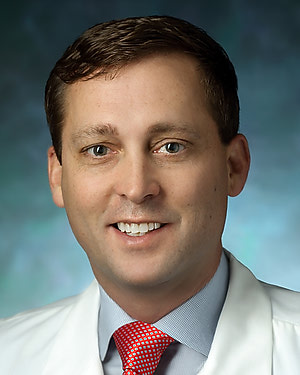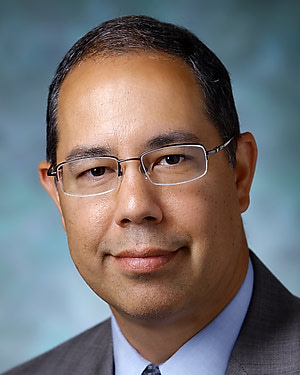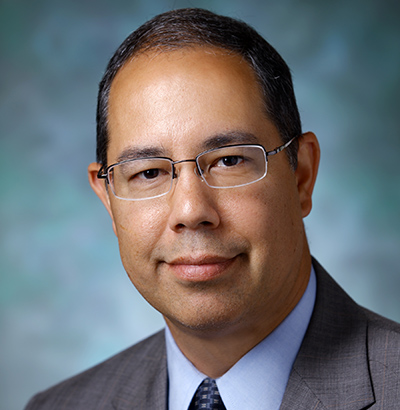-
Bret Allen Mettler, M.D.

- Director, Pediatric Cardiac Surgery
- Co-Director, Blalock-Taussig-Thomas Pediatric and Congenital Heart Center
Expertise: Aortic Coarctation, Atrial Septal Defects (ASD), Cardiothoracic Surgery, Congenital Heart Disease, Mechanical Circulatory Support
-
William John Ravekes, M.D.

- Medical Director, Pediatric Heart Transplant and Mechanical Circulatory Support
- Director, Pediatric Cardiology Fellowship
Expertise: Cardiology, Congenital Heart Disease, Fetal Cardiology, Fetal Echocardiography, Heart Failure
-
Danielle Gottlieb Sen, M.D., M.P.H., M.S.

- Director, Pediatric Cardiac Research
- Director, Pediatric Surgery Quality & Outcomes Research
Expertise: Adult Congenital Heart Disease, Aortic Coarctation, Atrial Septal Defects (ASD), Cardiothoracic Surgery, Congenital Heart Disease
Children’s Heart Failure and Heart Transplant Care
Heart failure in a child, whether in early infancy or late teens, can be a life-threatening condition that arises suddenly and causes stress and uncertainty for your child and family. Heart failure can appear in a newborn baby, a school-age child, or a teen living with undiagnosed heart disease for years.
If your child experiences heart failure, they are in excellent hands with the specialists at the Blalock-Taussig-Thomas Pediatric and Congenital Heart Center.
Appointments and Referrals
Pediatric Cardiology
Pediatric Cardiac Surgery
Existing Patients
What to Expect: Treating Your Child for Pediatric Heart Failure
There are options available for managing heart failure, treating the underlying cause and slowing heart disease progression.
Our goal is to investigate all the available approaches that could improve your child’s health and quality of life, including medication, the use of a ventricular assist device and, when necessary, heart transplantation.
Ventricular Assist Devices for Children
A ventricular assist device (VAD) supports your child’s heart function, maintaining blood flow to the organs as your child awaits heart transplantation. Routinely used in adult patients, VADs are increasingly used in pediatric and adolescent patients to address heart failure and as a bridge to transplant.
Other Therapies for Pediatric Heart Failure
Our team has experience in addressing pediatric heart failure with the full range of new and effective treatments, including:
- Medication with 24/7 home infusion therapies
- Extracorporeal membrane oxygenation (ECMO)
- Implanted biventricular pacemakers for cardiac resynchronization therapy
- Automatic cardioverter-defibrillator devices to treat life-threatening arrhythmias.
If Your Child Needs a Heart Transplant
Preparation for a heart transplant considers all aspects of your child’s life and wellness, and our doctors, nurses, technologists and other experts will guide you and your child through the process, step by step. Your child will be examined by a cardiologist, a transplant surgeon and a nurse practitioner who specializes in pediatric heart surgery. We will ask for your child’s dental records.
A child psychologist will help your daughter or son prepare for surgery with age- and development-appropriate support. We will listen to your child’s concerns and provide counseling on the surgical procedure and what happens next.
A social worker will walk you and your family through what to expect in terms of the surgery’s impact on your child’s home life, return to school, participation in sports and other concerns.
After Your Child’s Heart Transplant
Recovery after heart transplant surgery takes about two weeks in the hospital.
The immediate management of heart failure can be intense for children and their families, requiring up to two weeks of in-hospital care and four to six weeks of isolation to avoid the risk of rejection after transplant.
Our concierge services work with families to smooth the practical and logistic concerns of coordinating treatment, covering details such as parking, food resources and places to stay.
Keeping Your Child Safe with Immunosuppression
To ensure that your child’s body accepts a donor heart, we treat him or her with immunosuppressive therapy before and after transplant surgery. Temporarily suppressing your child’s immune system makes a successful heart transplant possible.
Because of this, your child might be more vulnerable to infection for several months after a heart transplant. We will review with you what is safe for your child to do for the first few months after surgery as the immunosuppression therapy ends.
Support and Care Going Forward
If your child’s or teen’s heart failure can be stabilized with treatment or heart transplant surgery, he or she will still require ongoing care. A donor heart is expected to last about 25 years. The continued course of treatment for your child may include regular outpatient catheterization procedures, further biopsies and possible surgery.
Parents should understand that a successful approach can mean a full life for your daughter or son, with an eventual return to physical activity, school, normal socializing and the chance for a full and happy life.
Meet Our Experts in Pediatric Heart Failure and Children’s Heart Transplants
"We focus our experience and skill on giving your child the best chance for a healthy and happy life, and remain committed to your child and your family throughout the duration of treatment and recovery.”
William Ravekes, M.D.
Why choose the Blalock-Taussig-Thomas Pediatric and Congenital Heart Center for pediatric heart failure and children’s heart transplant?
The full range of treatments.
We have access to the latest advances in heart failure therapy and skill in providing comprehensive, effective care for your child.

Expertise.
Our experts in heart failure and transplantation have extensive experience treating heart failure in children of all ages.

Individualized care for your child and family.
Our team works closely with each family to create a personalized treatment plan that offers your child the best long-term outcome, along with resources for the entire family.

Emotional support.
Heart failure and heart transplantation in a child calls for care across a range of specialties. Caring and compassionate child life specialists nurture children’s emotional and social well-being as they progress through each step of treatment and recovery.


